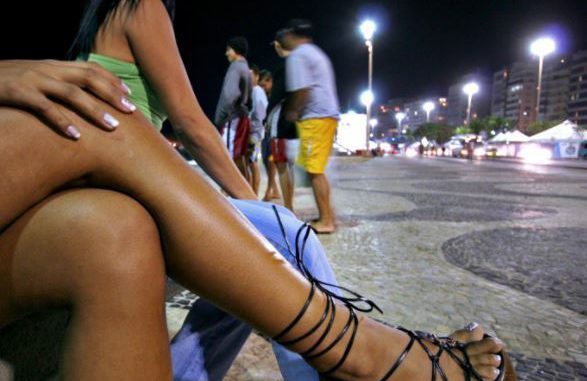
LAST week, the Nigerian Ambassador to Burkina Faso, Ramatu Ahmed, revealed that no fewer than 10,000 Nigerian girls had been forced into prostitution in Burkina Faso after being trafficked. Speaking during an interview with the News Agency of Nigeria, she said most of the girls were being kept in appalling conditions in Ouagadougou and in mining camps across the country. As Ahmed noted, for every single girl that had been voluntarily repatriated home, there were tens of others who had escaped into the bushes, preferring to stay in the sordid, dehumanising business of commercial sex work. The situation is, to say the least, disgraceful. The International Office of Migration (IOM) is in fact already disconcerted that Nigeria is taking more than its fair share of its allocated resources for repatriating victims of trafficking.
Coming on the heels of the Federal Bureau of Investigation’s (FBI) indictment of 77 Nigerians for fraud, this revelation is indeed disturbing. Burkina Faso, even by African standards, is a poor country, and the fact that underage Nigerian girls engaged as commercial sex workers in the country are unwilling to be rescued and repatriated home certainly casts a dent on Nigeria’s reputation. How would the government react to the fact that Nigerian girls prefer being commercial sex workers to being back home and in the arms of their respective families? This shows without doubt that the situation here at home is far from ideal. It is obvious that the entrenched culture of poverty and the erosion of family values are now bringing odium to the Nigerian state.
Poverty compromises the family institution. The family loses its rein on its female members whom the process of survival eventually persuades to look elsewhere, even if the means are not dignifying. Compromised, the Nigerian state is left only with a frantic bid to control the damage it ought to have prevented ab initio. A close look at the incidence of human trafficking would show that it is highest among citizens of poor countries. Sadly, the fact of Nigeria being the global headquarters of poverty can only be reinforced by this devastating revelation by Ambassador Ahmed.
The fact that the underage girls prefer the appalling conditions in which they live among the mining communities of Burkina Faso to returning home has devastating and telling effects on the narrative of the Nigerian state’s experience with trafficking in persons. The Nigerian government certainly ought to consider this revelation by its own ambassador as a self-indictment and make moves to address the ugly situation instead of basking in its tepid and lame fight against corruption which the revelation obviously rubbishes.
The vast majority of hapless and vulnerable citizens whose lives are daily threatened by existential expediencies and challenges cannot be expected to continue living in squalor. The Nigerian state must alter the narrative through purposeful governance.Only 200 out of the trafficked underage girls have been rescued. The rest are still in the bushes in a foreign country competing with deadly threats. The National Agency for the Prohibition of Trafficking in Persons (NAPTIP) has reportedly alerted the ECOWAS Parliament to the disconcerting rate of trafficking in persons in Nigeria: 500 daily, as of 2018.
It is disturbing that the government is losing no asleep with such dismal statistics, with the country fast becoming a pariah to the entire world.
END

Be the first to comment